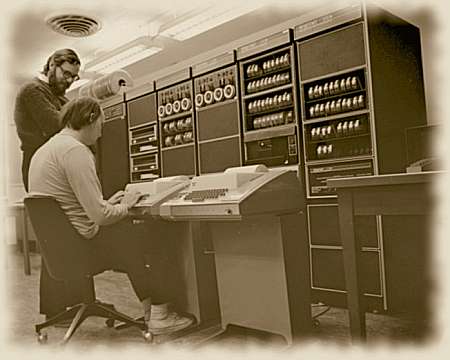A Systems Programming Language
C is frequently, and correctly, described as an excellent
systems programming language.
C also provides an excellent operating system
interface through its well defined, hardware and operating system
independent, standard library.

|
The C language began its development in 1972,
as a programming language in which to re-write significant portions on the
Unix operating system:
- Unix was first written in assembly languages for PDP-7 and PDP-11
computers.
- In 1973 Dennis Ritchie was working on a programming language for
operating system development.
Basing his ideas upon BCPL, he developed
B and finally created one called C.
(Yes, there is a language named 'D',
but it's not a descendant of C)
- By the end of 1973,
the UNIX kernel was 85% written in C which enabled it to be
ported to other machines for which a C compiler could be fashioned.
- This was a great step because it no longer tied the
operating system to the PDP-7 as it would have been if it remained
in assembly language.
In 1976 Dennis Ritchie and Stephen Johnston ported Unix to an
Interdata 8/32 machine.
Since then, Unix and Linux have been ported to over 260 different
processor architectures.
|
Today,
well in excess of 95% of the Unix, Linux, macOS, and Windows
operating system kernels and their standard library routines
are all written in the C programming language -
it's extremely difficult to find an operating system
not written in either C or its descendants C++ or Objective-C.
CITS2002 Systems Programming, Lecture 1, p6, 22nd July 2024.
|


 CITS2002
CITS2002 CITS2002 schedule
CITS2002 schedule